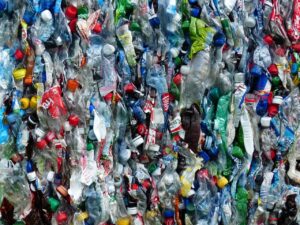
Government subsidies play a significant role in making newly produced (virgin) plastic cheaper than recycled plastic. Here’s how it happens:
- Subsidies for Fossil Fuel Production
Virgin plastic is made primarily from petroleum (oil) and natural gas. Governments around the world, including the U.S., heavily subsidize fossil fuel extraction and production through:
- Tax breaks for oil and gas companies.
- Direct subsidies to fossil fuel producers.
- Low-cost leases for drilling on public land and offshore.
- Infrastructure support (e.g., pipelines, refineries).
These subsidies lower the cost of raw materials used to create plastic, making virgin plastic significantly cheaper than recycled plastic.
- Subsidies for Petrochemical Industry Expansion
Many governments provide financial incentives and tax breaks to encourage investment in petrochemical plants that manufacture plastic resins. For example:
- The U.S. has provided billions in subsidies to build new ethane cracker plants, which convert natural gas into ethylene, a key ingredient in plastic production.
- In places like China and the Middle East, state-backed investments in plastic manufacturing keep production costs low.
Because of these subsidies, producing new plastic is artificially cheap, reducing the economic incentive to recycle.
- Lower Energy Costs for Virgin Plastic
Producing virgin plastic is often less energy-intensive than processing recycled plastic because:
- Fossil fuels are already subsidized, making energy for plastic production cheaper.
- Recycling requires collecting, sorting, cleaning, and reprocessing plastic, which adds costs.
Since many recycling plants operate with higher energy costs (often unsubsidized), recycled plastic becomes less competitive.
- Lack of Subsidies for Recycling
While fossil fuel and petrochemical industries receive large subsidies, recycling programs often get little or no government support. Instead:
- Many recycling facilities are privately operated and must compete in the open market.
- Municipal recycling programs often struggle with high costs and low profits, leading to budget cuts or closures.
This uneven playing field means virgin plastic stays cheap, while recycling remains expensive.
- Trade Policies Favoring Virgin Plastic
Some countries have lower tariffs on virgin plastic imports but higher tariffs on recycled plastic materials. This discourages companies from using recycled materials in their manufacturing.
- Fluctuating Oil Prices
When oil prices drop, virgin plastic becomes even cheaper, making it harder for recycled plastic to compete. Since oil markets are volatile and influenced by political decisions (e.g., OPEC production cuts, U.S. strategic oil reserves), recycled plastic prices can become unpredictable.
The Result: Recycled Plastic is More Expensive
Because of these subsidies and cost factors, virgin plastic can be 30-50% cheaper than recycled plastic. Companies that prioritize cost-cutting will often choose new plastic over recycled material, keeping demand for recycled plastic low.
Potential Solutions
To make recycled plastic more competitive, governments could:
- Reduce fossil fuel subsidies to level the playing field.
- Subsidize recycling programs and infrastructure to lower costs.
- Implement recycled content mandates, requiring a certain percentage of recycled plastic in new products.
- Introduce taxes on virgin plastic production to encourage companies to use recycled materials.
Until policies shift, virgin plastic will continue to have an economic advantage, keeping recycling rates low and plastic waste high.